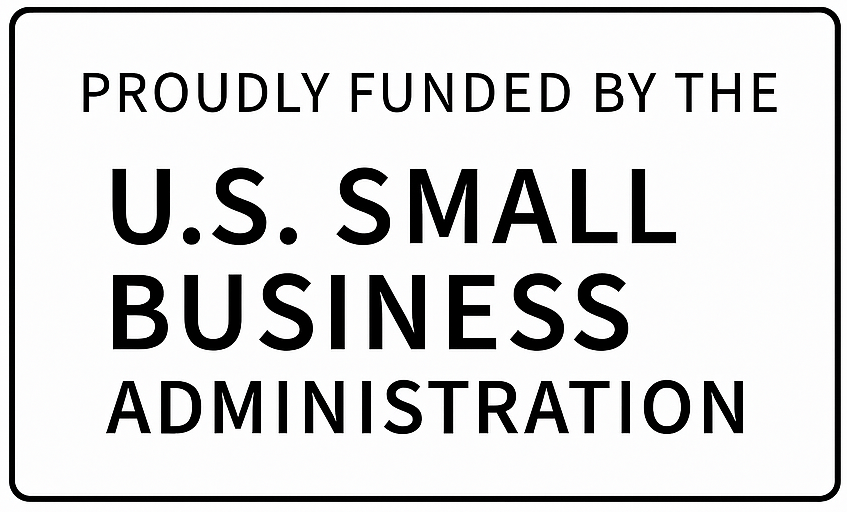Safety measures are essential during construction work. To secure a job or get promoted, you must possess the right certifications which will have you compliant with regulations. At any level in the construction field, a Construction Safety certification displays one’s initiative and professional capabilities. Employers appreciate OSHA certification since it is widely recognized, making it highly sought after across the country.
In this piece, we will analyze which certifications in construction are the most beneficial and how to tailor them to your personal goals.
What Is a Construction Safety Certification?
Construction Safety Certification recognizes specific training focused on various safety disciplines within construction environments while meeting compliance regulations as essential industrywide benchmarks. Such accreditation aims at giving assurance not only to employees but also to foremen and safety personnel on their capability of recognizing, mitigating, or managing both potential and existing hazards prevalent in construction assignments/jobs.
In addition, avoiding incidents from happening on job sites becomes easier with these certifications:
- They increase your chances of being hired.
- Related paperwork boosts pay significantly.
- Career progression opportunities become more favorable.
1. OSHA 30-Hour Construction Training
What is OSHA 30? It’s a 30-hour construction training course, and site leads, supervisors, and safety managers take the OSHA 30 Certification online program. It provides comprehensive coverage of construction safety protocols. This training is part of the OSHA 30-hour course, which is a prerequisite for many public and private sites. The Occupational Safety and Health Administration ( OSHA ) certification teaches hazard recognition, prevention, and reporting.
For those asking, What is OSHA? It’s a federal enforcement agency responsible for workplace safety regulations. For people managing large teams or complex tasks with significant risks involved, this course is ideal.
Finishing the OSHA 30 certification takes approximately four days. There are between ten and twelve modules. The course can be taken through approved providers offering an OSHA 30-hour online course. Certificates for training will be sent via email after the courses are finalized. A qualifying card known as the OSHA 30 card will be issued once you are fully certified.
Key Points:
| Is OSHA 30 required for supervisors? | Yes, many companies and states require OSHA 30 certification for supervisors and site leads. |
| Can I take OSHA 30 online? | Absolutely. You can complete OSHA 30 online. |
| How long does OSHA 30 take to complete? | The course is 30 hours long and typically takes 3–4 days. |
| Is OSHA 30 valid in all states? | Yes. OSHA 30 is a federally recognized certification and is valid nationwide. |
| Does OSHA 30 expire? | No, OSHA 30 cards do not officially expire, but refreshing every 3–5 years is often recommended by employers. |
| How much does the OSHA 30 cost? | The average cost is around $99 – $159, though prices may vary slightly depending on the provider. |
| Is there a final exam in OSHA 30? | Yes. At the end of the course, you’ll need to pass a final exam to earn your OSHA 30 certificate and card. |
| What’s the difference between OSHA 10 and OSHA 30? | OSHA 10 is for entry-level workers and covers basic site safety.
OSHA 30 is for supervisors or anyone responsible for others on-site and covers advanced safety and hazard management. |
OSHA 30 serves workforce supervisors or any personnel in charge of overseeing other workers on-site and deals with advanced safety issues and comprehensive risk management.
2. OSHA 10-Hour Construction Training
The introduction of the industry has been made easier by services like the OSHA 10-Hour Construction Training. This specific program helps with more advanced entry-level work roles and teaches basic self-preservation skills, procedures on how to alert others of potential dangers, as well as various security measures that protect your colleagues from potential harm. Anyone starting in that sector will benefit greatly from having this certificate.
This OSHA 10-hour course, like the 30-hour course, can be taken online or in person. A passing grade in the exam earns you an OSHA 10 card. Now, if you’re asking what OSHA 10 is? It is a basic level safety training accepted nationwide.
Key Points:
| How long does OSHA 10 take to complete? | It takes a minimum of 10 hours, usually spread over 2 days. |
| Can I take OSHA 10 online? | Yes. It can be completed online. |
| Does OSHA 10 expire? | No. OSHA 10 cards do not have a formal expiration date. |
| Is there a final exam | Yes. To complete the course. |
| How much does OSHA 10 cost? | Prices vary by provider but generally range from $48. Discounts are often available for group enrollments. |
| Do I get a certificate or card? | Yes. Upon completion, students receive a Department of Labor (DOL) OSHA 10 card, typically mailed within 2–4 weeks, and often an instant digital certificate. |
3: Fall Protection Certification Course
Falls continue to be the leading cause of fatalities in construction. OSHA reports that construction falls are responsible for more deaths than any other single cause, making Fall Protection Training one of the most important courses in construction. This training teaches workers how to identify and manage falling hazards at work sites.
What It Covers:
- Personal fall arrest systems (PFAS).
- Guardrails, nets, and lines are designated for safety.
- Proper harness inspection, including anchorage points and harness fall checks.
- Developing emergency response plans and mitigation tactics for job-specific scenarios.
Who Needs It:
Supervisors responsible for overseeing work above six feet off the ground include roofers, steelworkers, and scaffold builders, along with anyone who works at heights exceeding six feet.
Duration:
Generally, 4-8 hours tailored to depth.
4: HAZWOPER Course
For employees dealing with toxic waste removal, responding to emergencies involving dangerous substances, or being exposed to them requires specially designed HAZWOPER training under federal OSHA guidelines. This course goes beyond basic safety training as it demands much greater focus and though,t as well as specialized knowledge on various techniques.
What It Includes:
- Identifying problems and evaluating risks.
- Using respirators and protective clothing.
- Decontamination steps.
- Response to emergencies & spill management.
- Surveillance medicine and monitoring exposure.
- OSHA 29 CFR 1910.120 Compliance.
Who Is It For:
- Workers in hazardous waste operations and emergency response (HAZWOPER).
- Environmental subcontractors.
- Responders to emergencies.
- Utility workers and pipeline maintenance crews are working in high-risk locations.
5. Hazardous Communication Training (HazCom / GHS)
HazCom training provides understanding of workplace chemical hazards, safe use, storage, disposal procedures, compliance with OSHA’s Hazard Communication Standard, along with the application of the Globally Harmonized System (GHS) for labeling.
What it covers:
- Proper SDS interpretation(show data sheets).
- Reading GHS compliant labels and coloring reserved for hazard class status, toxic, flammable, corrosive, etc.
- Employees’ rights regarding the information on exposure to chemicals.
- Responding to emergencies caused by a chemical spill or exposure.
- Selection of PPE for protection against chemicals.
Applicable To:
Employees in construction and other industries dealing with paints, adhesives, solvents, fuels, cleaners, and other hazardous materials.
Supervisors or safety officers are designated for compliance with chemical safety regulations under the law.
Timeframe:
A typical duration is between 2 to 4 hours.
Certification for Career Advancement
In the construction industry, certifications are not optional; rather, they are required due to the fact that this is proof that one has undergone training and can be relied upon to handle modern issues in the field. This comes with advantages as it helps in career progression within the industry. You may decide to go for OSHA 10, OSHA 30, or an advanced management certification, and you will always land a job as these prepare you for success.
Conclusion
It is important for those employed in the construction industry to have construction safety certifications. These documents help an individual stay committed to personal and occupational safety, enhance employment opportunities, and assist in career progression. The right certification can make a difference in today’s tough construction market whether you are new to the field or an experienced team leader . Start your construction career with getoshacourses.com . Enroll OSHA 10 & OSHA 30 Certification and become OSHA certified construction worker.



